How to apply for a university education in France
Campus France is the French agency that is responsible for the promotion of higher education and international mobility in France. And it is precisely through this organization that they have to pass to apply for a training at a university in the French country.
On this occasion, I will talk to you more precisely about what the process is like when you want to come to France to study a master's degree.
Why did I decide to come to study in France?
In Mexico, I studied the Bachelor in teaching French. At the end of the race and having already made an exchange to France, it seemed obvious and logical to continue my master's studies in France. On the one hand, because it is increasingly common as a minimum recruitment requirement have a master's degree. On the other hand, because for my area there is only one master's program in Mexico. When compared to the study plans of the formations in France, this did not seem so complete.
It is for these two reasons that I decided to apply for a training in France. Also, when it comes to studying to be a French teacher... what better option than to come and study here! Both to improve my language level and to learn even more about culture and customs. Things that are learned only by being in the country in question.
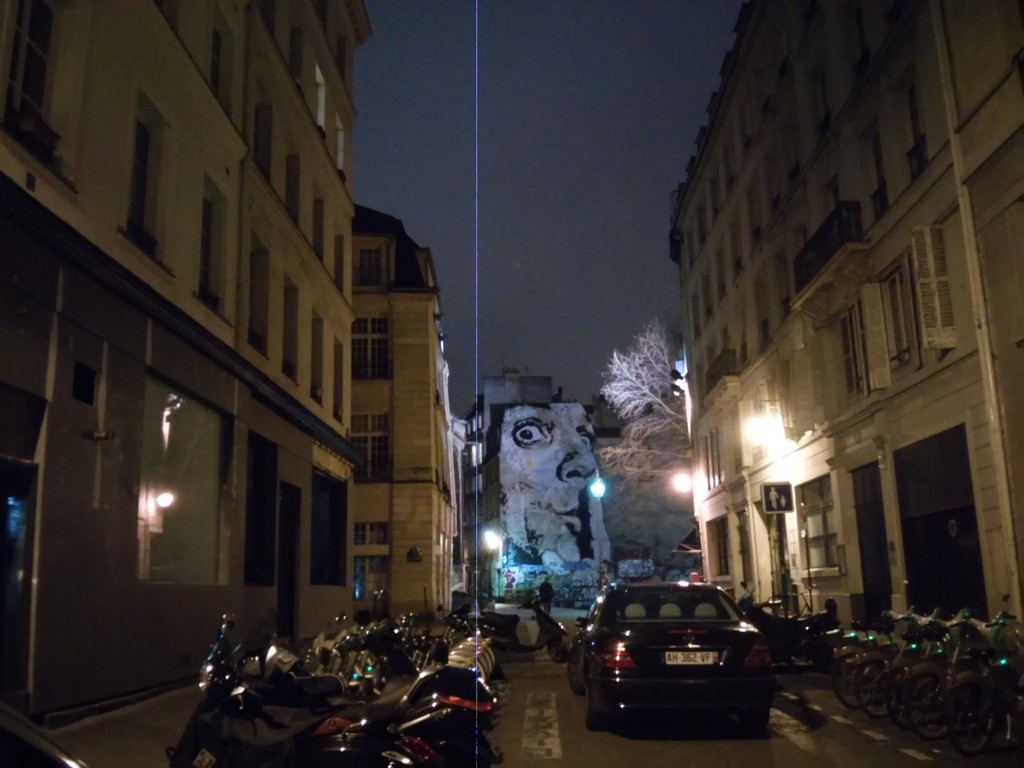
France... although some years ago I wanted nothing more than to return to Quebec, now I realize how good I am here.
Organization of higher education in France: LMD
Before explaining how was the application process for French universities, it seems convenient to talk quickly about how to organize higher education in France. In general, the university system is known as the "système LMD" (LMD system, in Spanish). The acronym LMD comes from License - Master - Doctorat. Each of these stages have a duration of three, two and three years. That is why when talking about BAC + 3, BAC + 5 and BAC + 8 reference is made to each of these different stages.
That of "BAC + something", means the number of years that have been studied when obtaining the BAC, that is, the corresponding degree at the bachelor level.
All training lasts the same: three years for the bachelor's degree, two for the master's degree and three for the doctorate. Although it is true that for the doctorate... well, there are those who take more than three years to finish with that famous thesis. But that, is another story (I'm still not at that point, I'll tell you when it's the case! ).
The process to apply for a master in France:
In general, most universities ask for the application to be made through the Campus France procedure. A few, ask that you apply for training independently, that is, following the procedures and rules that the school itself sets. And in very rare cases, there are institutions that ask for both procedures, both Campus France, and independently (why? I do not know... ).
Master professionnel and master recherche
Before continuing explaining what is the Campus France procedure and its different stages, you should know that in France there are two types of master. One is the master recherche and the other is the master professionnel.
The first is mainly directed to the investigation, as its name says. Generally, this type of master is what is needed to continue in doctorate. Although currently, it is common that someone who has studied a professional master and who has done a quality research work, is accepted to continue in a doctorate.
As for the master professionnel, this is a training that focuses on practice. That is to say, the objective of this type of programs is that when the student finishes his studies, the student is ready to enter the active professional life (in a few words, that then, then to work).
They should also know that access to the second year of the master is restricted. That is, they have a number of limited places. (Although recently I read a story that said that "clause" has been suppressed and that, from now on, all candidates must be accepted in master 2... although one thing is theory and another is practice...
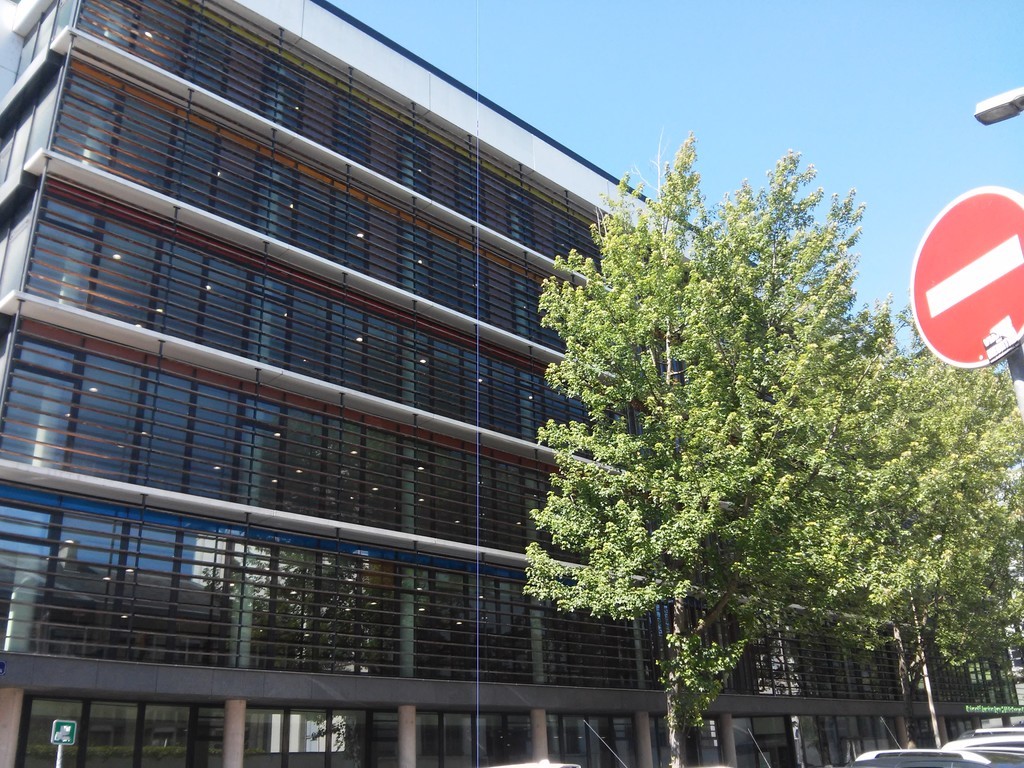
The library of Lyon 2. I like to go to school there! It is very bright and wide, inspires to apply to work!
Continuing with that of the selection for master 2, in my promotion we were only 26 students and the person in charge of the program told us that they had received... approximately one hundred nominations! If it was like that for Lyon, now imagine for Paris! I applied for a total of six programs (the maximum possible through Campus France). Lyon, Paris, Rennes, Bordeaux, Avignon and Pau.
They accepted me in all the programs to which I had applied, even in Paris (which is very close! ). The key was to put together a good file. So that's the advice I can give you: present a solid file, which shows that you really want to study that training. Tell why it is this program that will help you achieve your career goal, what subjects interest you and why. Do not settle for saying: "I liked the curriculum and you see that the city is beautiful "!
My attempt for the master 1...
At first, my idea was to come to France for the two years of master. So I applied for Campus France to Clermont Ferrand, Montpellier and another university that I do not remember... I was accepted in all the universities I applied, but... I did not find a scholarship! Well, there was one I could apply for but finally I did not get up because my area of study was not a priority and I was afraid that they would not give it to me.
So, despite having the admission done, without money to pay my year in France, I had no choice but to stay in Mexico. Although I regretted it a bit and felt sad that I could not achieve that goal at the time I wanted to, I did not give up and I told myself that the following year I would try again... That's how it went!
My second attempt: direct to Master 2 (and success! )
Determined to return to France to study the master's degree, had seen that there was a scholarship for Master 2. That is, it covered the second year of masters. So I told myself that the best option was that: come directly for the master 2. And is that having done two more years of studies, I would have delayed compared to the other projects I have.
I already explained above the difference of the French and Mexican university system. The degree in Mexico lasts a minimum of four years, while in France, the standard duration is three years. That is why, under certain conditions, Mexican students can apply directly to the second year of masters. Thanks to that, we can "save" a year of studies.
In addition to four-year undergraduate studies, other factors taken into account to accept someone in Master 2 are the language level, work experience and having previously made a study stay in France (preferably six years). months or more).
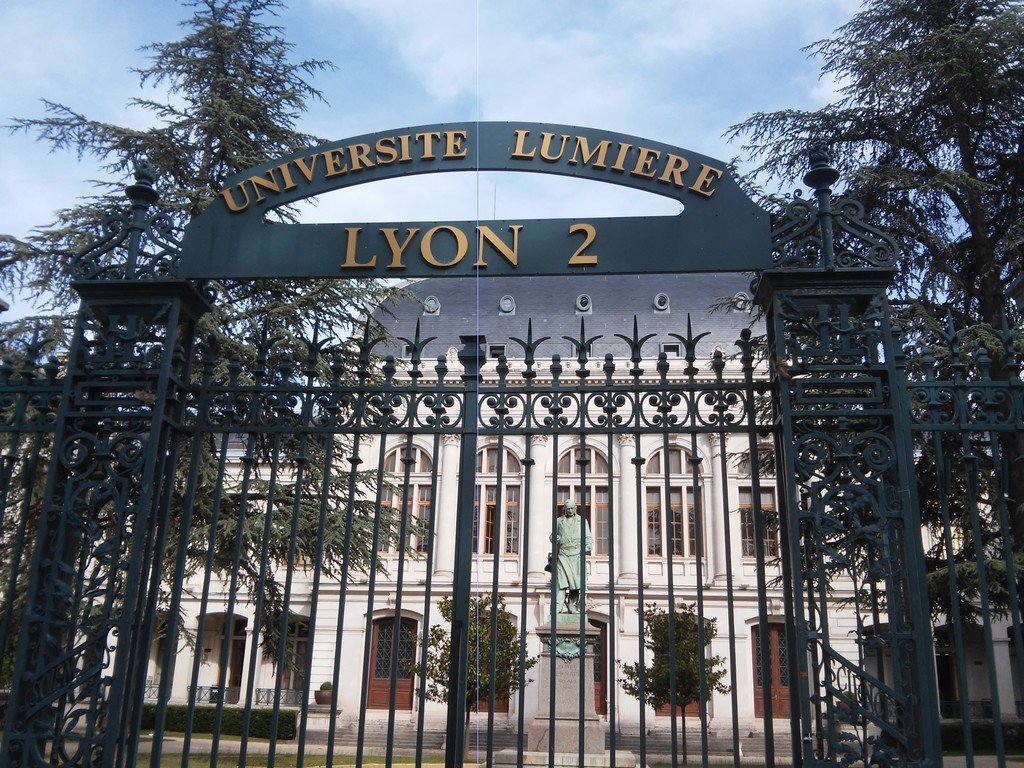
"Skip" one year and go directly to master 2
Then, I explain a little more detail each of these conditions to enter directly to Master 2...
Having made a prior exchange to France
Thanks to this , they know the French university system, they are already familiar with it. This makes it easier for them to fit in than when they arrive directly at a master's degree if they did it without ever having studied in France. I think it is an important requirement because I find that in Mexico the university system is much more guided than in France.
Here in France, I think the student is more autonomous. He has to go and find information on his own, to complete the information given by the teacher in class. In addition, while in Mexico we have a subject two or even three times a week, here in France it is only once a week.
Although that does not mean that progress is slower in the French university... I think the opposite can happen: as you have fewer sessions, in each of them you get to see a lot of information. That is the importance of the student's autonomous work...
For all this, I think it is better to have been in France for the first time and then be able to apply for the master... so one is better prepared for what awaits him.
Language level: B1 or B2 (up to C1! )
Although there are formations that are given in English, the vast majority is in French... and well, what did they expect?! Being in France, it is normal to study in this language. So a very important point is to have a good level of language. The level required varies according to the study area they belong to. For humanities, they usually request a B2 level or even C1. In contrast, for exact sciences a B1 level is usually sufficient.
By the way, when I applied to Master 2, I already had my DALF C1. I think that for FLE or studies whose speciality, whose main object of study is the French language (literature, linguistics, etc. ), is It is highly recommended to have this level... and that will make things a lot easier when it comes to the dreaded moment of writing the famous... thesis!
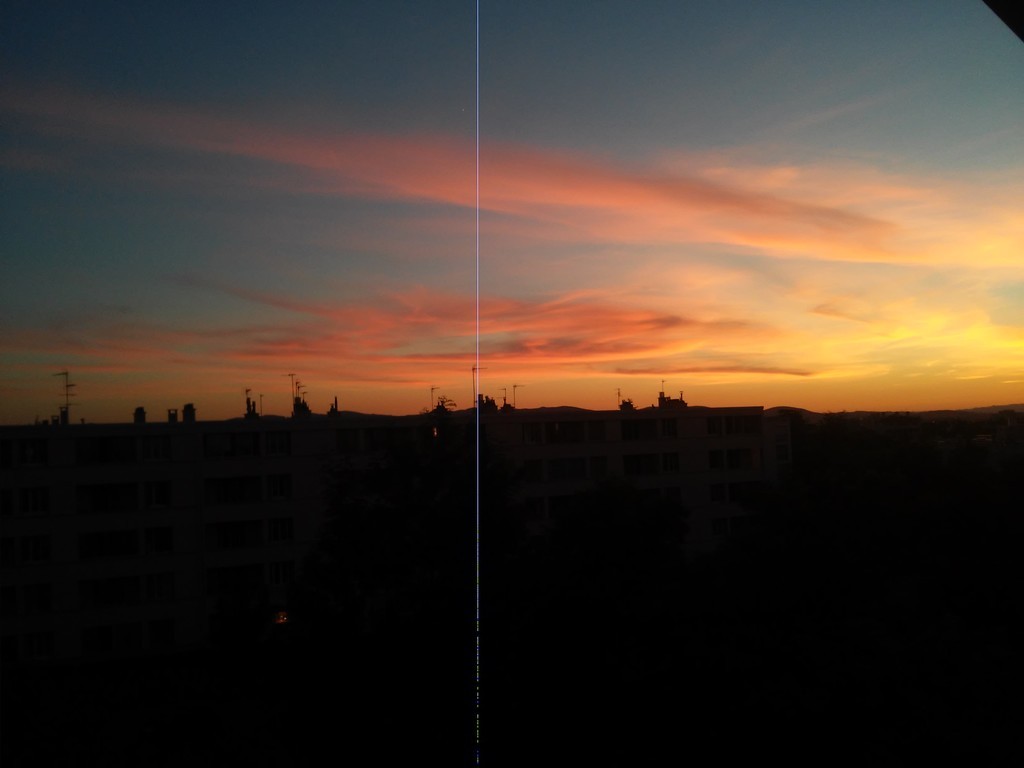
One of the beautiful sunsets I saw from my room in a university residence... I think I miss them because I saw them every afternoon. But hey, each stage has its time and although you have to give up certain things and close certain cycles, there are always new doors that open... and better opportunities that come! You have to always be optimistic!
Work experience
The "extra" year that I stayed in Mexico, when I could not come to France for Master 1, I worked to gain work experience. I knew that would be a very point in my CV and that, thus, I would have even more possibilities of being accepted in Master 2. Likewise, in France they consider that someone who has already worked has acquired knowledge directly in practice, which is complemented by theory.
Having done the degree in five years
If that is the case, in France they can re-validate the "extra" years they studied in Mexico.
All the requirements that I have just mentioned, will not guarantee that they will be accepted in master 2. Because besides gathering them, they must do (as I mentioned above) a good file to show that they are really interested in the program to which they applied.
Extra recommendations...
Check the different study programs in the various French universities
They can say: "What!? But how long will it take me!? Surely a lot! " Yes, it is true that it can take time to check the programs of each university. But tell yourself that, on the one hand, not all of them offer the masters that interest them. For another part, the master is something that will largely determine their future work (and, therefore, personal), so it is advisable to make a good analysis of the possibilities they have.
Oh, eye! They can study one year of master's in one university and the next in another. And it is that each year is independent of one another. I recommend you not to trust that because they liked the first year program, the second one will be super.
For example, in my case, I remember that for the master 1 the program that I liked the most was the University of Montpellier. All subjects (at least, most) seemed very interesting and with a practical application in the classroom. There was even a course on how to teach French through theatre... interesting! Do not?
For the second year, I do not know why, but I had the idea that it would be just as interesting in that university. But when it occurred to me to check the program again, I saw that the Master 2 courses at Montpellier really did not seem so interesting to me.
On the other hand, I discovered that Master 2 at the Lyon 2 University was the one that interested me the most. Even though the previous year I had seemed very focused on linguistics ( and that was not what caught my attention), the program of the master 2 of Lyon was the one I finally liked the most.
Again, the Campus Berges du Rhône de Lyon 2 (although you can never access this patio, I do not know why).
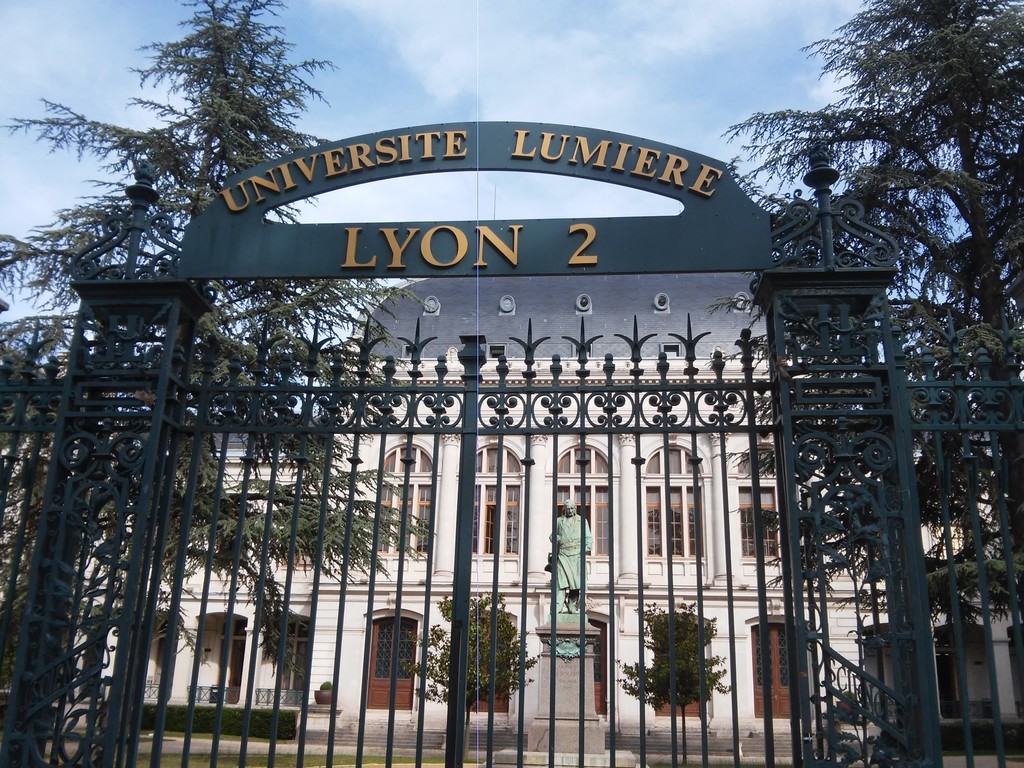
Be careful with dates!
EYE! A lot, a lot of attention with the deadlines of application of each university. Most accept candidacies until March 31 of each year, a few after that date. Make your candidacy BEFORE the end of March so that they can apply to all those that interest them and that are not forced to have to "settle" with what remains.
So prepare your file with time, gather all the necessary papers, check the study programs and write your letter of reasons for each of them.
It's true that it may seem like a lot of paperwork, but I assure you it's worth it. Think of that little "sacrifice" of time you are doing now, will be rewarded.
The Campus France process
In summary, the steps to submit your candidacy for Campus France are the following:
- You choose your universities
- Upload your papers to the Campus France platform
- You send your file in paper version and agendas interview with the Campus Frances space that corresponds to you, according to your geographical location. In Mexico it seems to me that there are three or four (one in Mexico City, another in Yucatan, another one in Monterrey and I think another in Guadalajara).
- They validate your file
- You wait for the answer of the different universities
The logo of Campus France, the French agency for the promotion of higher education.
The main papers that will contain your file will be:
- CV.
- Letter of reasons
- Diplomas
- Recommendation letters
- Work certificates (if they have them)
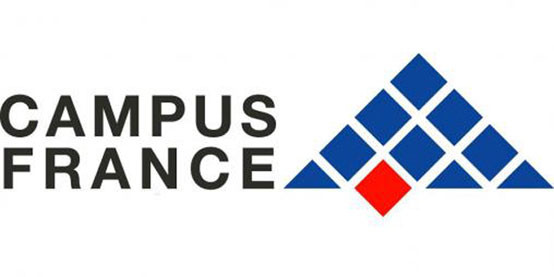
By the way, all the documents that are in Spanish, must be translated into French by an expert translator (that is, they are not translations that you can do for yourselves).
Once you have received a response from one or more universities, you can definitely choose one of them. At that time, you must request an appointment at the French Embassy in Mexico for your visa. I advise you to schedule your appointment as soon as you receive the first answer. Do not miss the time because in June, July and August is when the Embassy receives many requests... and therefore the appointments end faster!
If you do not schedule your appointment, you will not be able to take out your visa... and that will delay your arrival in France. I know of friends who arrived a week or two after they had started the courses because they had not been able to get their visa before...
The scholarship I had...
The French Government offers five scholarships each year for Master 2 studies. They can check the call on the page of the Ministry of Foreign Affairs (SER) of Mexico. It appears in February, March and closes in mid-April.
I also know that there is a new scholarship that covers the two years of master (it was just the year after I needed it! ).
As for the scholarship that I applied for (and what I got! ), At the same time that I prepared my papers to apply for the master by Campus France, I also prepared my file to ask for the scholarship that I needed.
I remember that I sent my papers two days before the closing of the candidacies. I sent my papers by recommended post and since I did not know if they had received them or not, I telephoned the offices to find out. Fortunately they did. Out of curiosity, I asked how many files they had... they told me that there were more or less thirty-five of the whole country! More the ones that were still to arrive... And do you know how many scholarships they gave? Only five!
Also, my area was not a priority (tourism and aeronautics were). Fortunately, I went to the pre-selection stage, where we would have a personal interview. They called only 15 for an interview, of which only five gave us the scholarship... among them me!
Lyon! Les quais de la Saône... during a sunny day!
A few days ago I was checking the mail I received, first telling me that I was called for the personal interview and then, when they gave me the excellent news that I had been awarded the scholarship. It is undoubtedly one of the most important achievements I've had so far.
If I had not obtained that scholarship, I would not have been able to come to France... or who knows how long it would have taken me to save what I needed to pay for my training! And here the cost is not the tuition (only one payment is made for three hundred or four hundred euros per year, although there may also be other masters that are more expensive), but daily life (accommodation, food, transportation, etc. ).
What my scholarship included...
Thanks to this scholarship, I received a monthly amount of seven hundred and sixty-five euros to cover my stay. In addition, being a French government scholar, I was exempt from the university registration fee, as well as the social security fee. And I did not pay the processing fee either the visa.
By the way, if you get to have it, mention in the Embassy that they are French scholars and, therefore, do not have to pay for that procedure. I remember when I went to ask for the Mine, the guy who took care of me was already charging me. So I had to clarify that I did not pay that fee.
Also, this scholarship included a complementary health insurance (mutuelle). The only possible "disadvantage" of my scholarship was that it lasted only for nine months... while I had to stay in France for a whole year! And it is that my thesis defense was until September.
Anticipating this, I saved every month to cover the time I would be without a scholarship. I did not have any problems at the end because I managed the money well and even saved more than I had planned (well, better than missing! ).
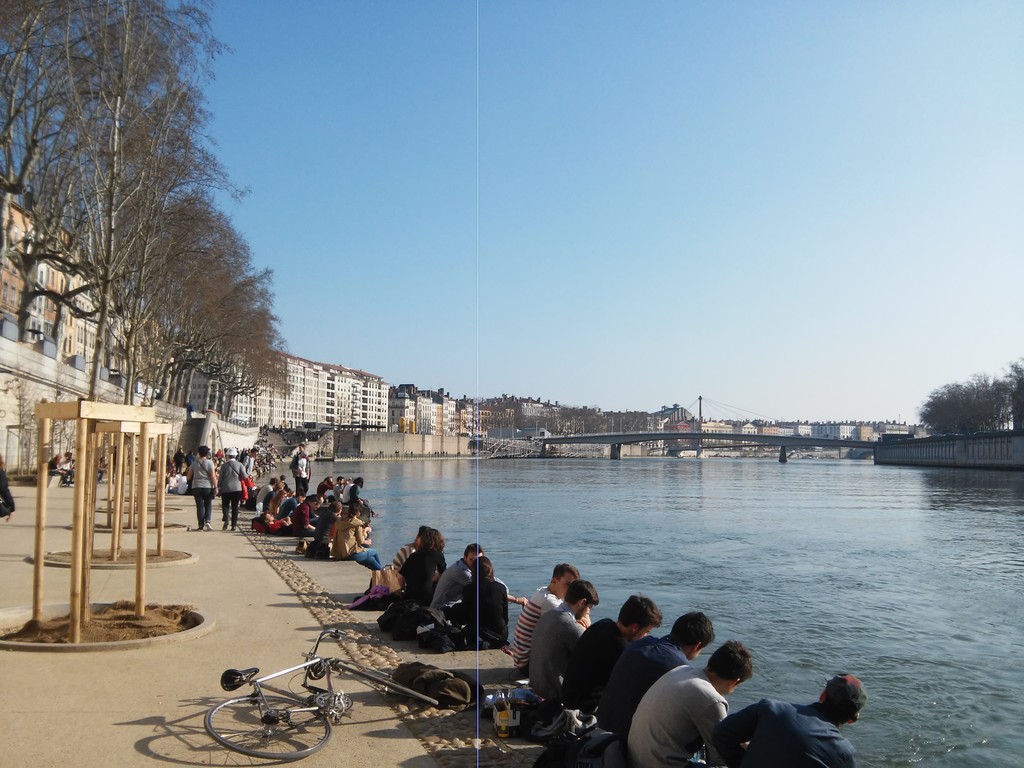
By the way, one more advantage of being scholars of the French government is that they are priority to obtain a room in a public university residence. These accommodations are granted by the CROUS and are much cheaper than any other place. It is the cheapest option available.
Although you can imagine that, since it is so cheap to live there, they will not be the only ones who want a room in a CROUS residence... but, as I said, if they have a scholarship from the French government, they are more likely to be accepted there. If so, the money will reach you much more.
Finally, I have one last recommendation: in Mexico, use Estafeta and not DHL to send the papers you need to send... I used the DHL service twice and the delivery guy (by chance! ), Did not find I had to go to pick up my package personally in their offices... When I had paid to have it delivered to my home!
Mmm... although now that I remember, although I had not had problems with Estafeta, the last time we sent important documents, they did not deliver them at home and they did not even warn that we had to go look for them... I think, in fact, the advice I can give them give is that use the company they use, be aware of your package and track it often. So you can know if it was delivered, if there is a problem or whatever.

Paris
Conclusion
Another long article, it's true. But I think it was necessary to explain in a detailed and clear way about how is the process to apply for a master's degree in France... And although there are things that can be applied to most cases, there are always particular situations.
That is why I recommend you to first check the information given by Campus France and to come to them for any questions. Because that is precisely their role: to help and guide them so that their dream to come to study France become a reality.
I hope that the information I have just given you will be useful and will guide you a little more in the way to follow so that you fulfil your goals. Bisous!
Photo gallery
Content available in other languages
Want to have your own Erasmus blog?
If you are experiencing living abroad, you're an avid traveller or want to promote the city where you live... create your own blog and share your adventures!
I want to create my Erasmus blog! →











Comments (0 comments)